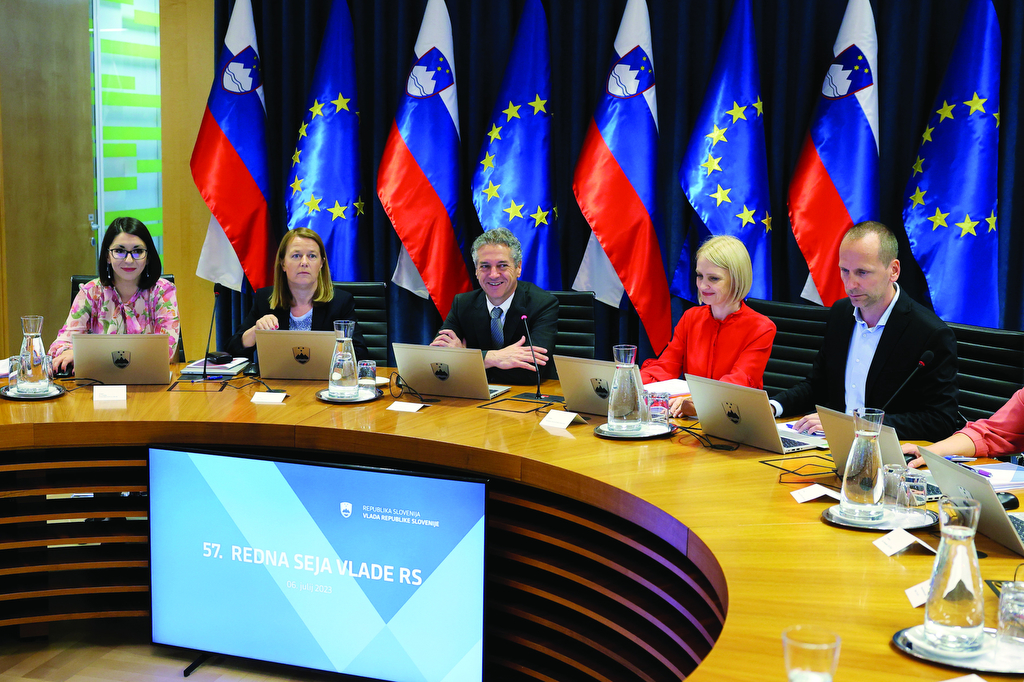By: Katedrala svobode – podpisniki
Dear Prime Minister and Members of the Government of the Republic of Slovenia,
A few days ago, following the initial digital version released in March, the printed edition of the book Consensus for a Historic Moment was published. It was written by 74 “attentive and well-meaning” authors, among them the undersigned editors. The authors described the dilemmas in Slovenian politics, and many expressed serious concern about Slovenia’s international position, particularly due to shortcomings in the community of European states we have belonged to at least since 2004, but to which we have paid too little attention and goodwill in recent years.
As early as January 1990, within the circle of supporters of Slovenian statehood and democracy, we proposed:
- that relations with Europe be arranged “through Ljubljana,” not “through Belgrade”;
- that between the Brioni Declaration (July 1991), our UN membership (May 1992), and our accession to NATO and the EU (2004), we constructively defined our international position,
- thereby positioning Slovenia among the successful and respected members of the international community.
Up until 2008, or until the end of the Cold War, Slovenia maintained and strengthened its favourable international position. Today, on the eve of our independence anniversary – and admittedly in significantly changed global circumstances – critical external and internal observers are asking about the causes of our current uncertainty, and more importantly, about the appropriate foreign policy for this new era.
It cannot be claimed that the United States is withdrawing from its role as Europe’s protector and champion of liberal democracy solely because of the current President Trump. His criticisms of Europe’s “free ride” in defence and military matters are justified. His “transactional” policy should be thoughtfully considered, just as some authors did in Consensus for a Historic Moment. Events in the U.S. have a major impact on the entire world. It seems that nothing will ever be quite the same again.
Not far from Slovenia, tensions are mounting in Eastern Europe, the Baltics, the Mediterranean, and recently between Israel and Iran. The humanitarian crisis in Gaza and the human casualties between Ukraine and Russia are drawing the most attention. A large part of the responsibility for tensions and wars lies with Russia and its autocratic president, who has allies even in Serbia, those who, in turn, have ties with the Mayor of Ljubljana. Slovenia has somehow unwittingly or inadvertently become a favoured source of all kinds of (intelligence, economic, cultural…) information, which – so it seems – reach Belgrade and the Kremlin.
Slovenia is timidly aligning itself with the already timid policy of the European Union, whose honour – thanks to the excellent foreign minister Kallas – is being upheld by the “directorate” of Macron-Merz-Starmer-Tusk. Evidently, the main players on the global stage lie outside of Europe: in Moscow, Beijing, and Washington. Europeans are merely trying not to be completely sidelined. Between the two competing political models, democracy and autocracy, the latter is currently winning. Slovenia has little influence or role in all this but often responds with clumsy and barely comprehensible gestures. Still, such a position is not inevitable – at least not in the future.
The most irrational move was Slovenia’s propaganda campaign against the U.S. and NATO. A typical and utterly unhelpful example was the decision to recognise the State of Palestine. The current Slovenian government has failed to notice that previous foreign policy supported the right to self-determination for the Palestinian people (and other peoples) with care and goodwill, but it did not support terrorism as represented by ISIS/Daesh, Al-Qaeda, Hamas, Hezbollah, etc., whose stated programmes call for the destruction of Israel, that is, genocide of the Jewish people. Although not all of Israel’s military measures are easy to defend, most are not difficult to understand. In 1991, Israel strongly supported Slovenian self-determination, a fact we should not forget.
The EU is facing its greatest challenge yet: in order to be able to compete with other global powers, it is debating replacing unanimous decision-making with majority voting. As a small country, Slovenia naturally cannot support majority decision-making. As stated in the title of our new book, it is necessary to strive (vigorously, without delay, and by all diplomatic means) for European consensus. Instead of engaging in polemics and high-flown rhetoric, Slovenia could contribute meaningfully to European policy. We must build a support network of like-minded states, perhaps within a group of Central European and Baltic nations. In this demanding environment, Slovenia can only establish itself through originality and resourcefulness, through diplomatic experience and precise concepts. However, a unified position of such a group would carry more weight in a broader European context than Slovenia’s stance alone.
International tensions and wars are drawing ever closer to Central Europe, especially to Slovenia and Croatia, which border the geopolitically desirable Balkans. It seems the EU will have to postpone, or is already postponing, further enlargement. The Balkan enlargement, despite broad support in Slovenia, cannot be helped by Slovenia’s current EU Commissioner, who, during Yugoslav times (as documented), was a confidante of the secret political police, a fact she denied even during hearings in both the Slovenian and European parliaments.
Dear Prime Minister and Ministers, as you can see, we have taken the liberty, based on our experience, to freely reflect on Slovenia’s diplomatic and political challenges. We found such reflection necessary because Slovenia’s domestic political dilemmas are increasingly also foreign policy dilemmas that demand attention and goodwill. We would be pleased if the government would encourage a broader discussion of these challenges and the future direction of Slovenian foreign policy.
With respect,
Dimitrij Rupel, Peter Jambrek, Ernest Petrič, Alenka Puhar, Ivan Štuhec, Žiga Turk, Tomaž Zalaznik
